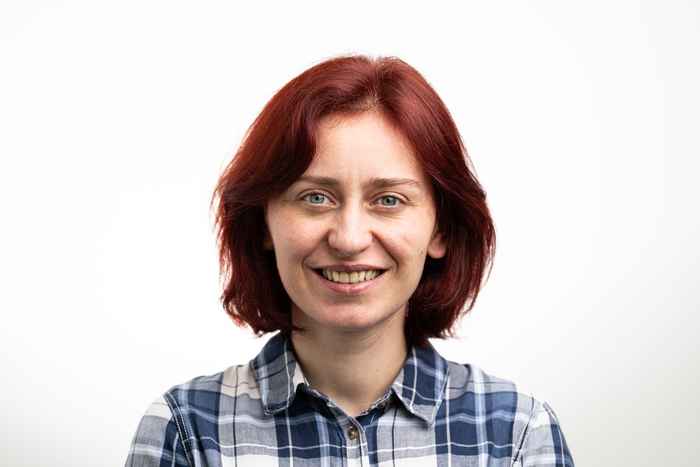DSC Member Spotlight: Victoria Degeler
2 September 2024

How do you apply data science to your projects?
'My main research direction can be described as the reconstruction of the physical environment from sensor data and reasoning and decision-making based on this reconstruction. For the last several years, the term "digital twin" has been often used to describe these activities, but back when I was doing my PhD, this term wasn't around yet, and we just called it "smart environments". There are so many aspects that need to be covered, starting from the choices in data representation, complex event processing, change detection, profiling, forecasting, and so on. Data science is central for these activities.'
Is there a project from this past year that you are most proud of?
'I am coordinating a large-scale project "DiTEC: Digital Twin for Evolutionary Changes in Water Networks", which involves the University of Amsterdam, the University of Groningen, Hanze University of Applied Sciences, and two industrial companies. We're collaborating with the largest Dutch water network provider Vitens to construct a Digital Twin of a water network ecosystem. The data that we get from sensors is scarce, not just in terms of full state observability, but also in terms of the limited historical coverage of all potential situations. We have to apply many different techniques, including semantic rule learning, graph neural network-based state estimation, and adaptive model selection to adapt to environmental changes.
I'm proud of this project because not only does it generate high-quality science, but I also see the real and immediate impact that we are making on the technological advances of the actual critical infrastructures. We are working with the water distribution network of the Dutch Oosterbeek region in close collaboration with the water provider to ensure that our results are available to the decision-making teams "on the ground".'
What do you like most about being a DSC member?
'I am always amazed by how enriching close collaboration with members of different faculties can be. You are exposed to very different research cultures, and every question that is raised during the DSC meetings is discussed from so many different angles. These discussions inevitably contain some valuable insights for all members of the DSC, even those who have already dealt with these questions before.'
What is your favourite data science method?
'It is probably rule mining, the extraction of logical human-understandable rules from large datasets. There is something fascinating about the ability to describe complex relations between different entities in the data with clear logical connections. With the huge advances in statistical learning methods, the symbolic part of AI was somewhat left behind. But, recently there has been a resurgence of understanding by the research community that symbolic formal representations are valuable, and statistical and symbolic methods can improve each other.
Are you camp Python/R/or something else?
'It's hard to beat Python's versatility, popularity and power in terms of available libraries. But each tool is good for the job it is designed for. Jupyter Notebooks allow unparalleled power for playing around with your machine learning experiments, but they are not well suited for writing robust software engineering applications. I have spent quite some time developing in Scala and Java, and would prefer them for creating applications, especially those that have to run in real-time.'